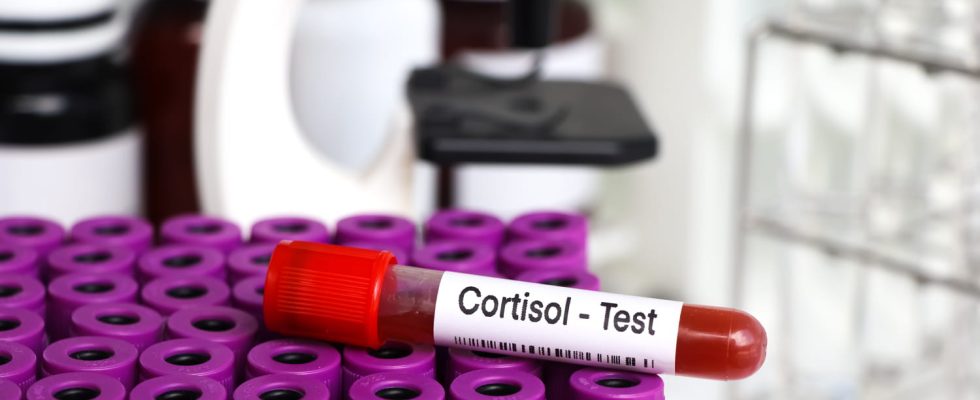In the event of significant aggression to the body, the adrenal glands secrete cortisol. What is the role of this hormone? What is its link with stress? Update with Dr Olivier Dupuy, Head of the endocrinology, diabetology and nutrition department at Paris Saint-Joseph hospital.
What is cortisol?
Cortisol is a physiological hormone produced by the adrenal glands. It is involved in the body’s management of stress and is essential for life. The absence of a cortisol stress response for 24 or 48 hours can lead to a dramatic situation. acute adrenocortical insufficiency, often associated with a digestive then cardiovascular failure. Cortisol also plays a role in metabolism of carbohydrates, lipids and proteins. “Cortisol secretion follows circadian rhythm : it is secreted in large quantities between 6 a.m. and 8 a.m., when we most need energy, then it decreases throughout the day to reach a minimum threshold at 12 a.m.“, specifies Dr Olivier Dupuy.
What is the link between cortisol and stress?
Cortisol is nicknamed “the stress hormone because it is secreted significantly in the event of attack on the body. Like glucagon, GH, catecolamines (mainly adrenaline and noradrenaline), cortisol is a so-called hormone hyperglycemic, which means it raises blood sugar in all times of stress. The goal ? “Meet the energy demand of the brain and heart. However, this is not stress as we understand it in everyday language but the medical sense of the term which defines any attack on the body: acute infection, surgery, hypoglycemia, intense stress“ indicates the endocrinologist.
Does stress increase cortisol?
If the body secretes cortisol to respond to a state of stress, the opposite is also true: any stressful situation increases the production of cortisol.
What are the consequences of a lack of cortisol?
A lack of cortisol can lead to cortico-adrenal insufficiency which results in a severe fatigue, digestive problems (abdominal pain, diarrhea, dehydration). “This can lead to a cardiovascular collapse because the body is no longer able to resist. Cortisol can be absent for several reasons: destruction of the adrenal glands due to serious illness, tuberculosis or autoimmune disease. Patients treated for a long time under synthetic corticosteroids risk putting the cortico-pituitary axis at rest and when the treatment is suddenly stopped they may also find themselves in danger. adrenal cortical insufficiency“, warns the specialist.
Thanks to Dr Olivier Dupuy, Head of the endocrinology, diabetology and nutrition department at Paris Saint-Joseph hospital.
